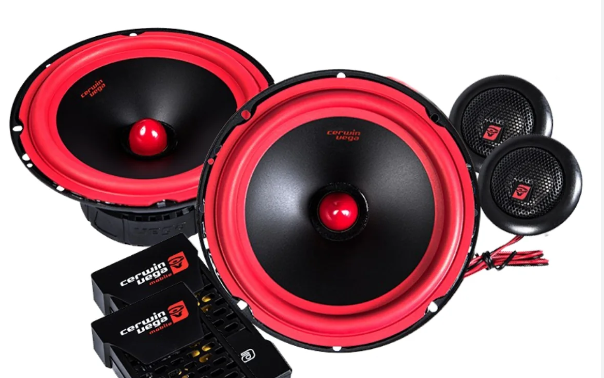When upgrading your car’s audio system, you might come across a term that doesn’t get as much attention as it deserves: speaker sensitivity. While many people focus on wattage and size when choosing speakers, sensitivity is a critical factor that plays a huge role in the overall performance of your car’s audio setup. But what exactly is speaker sensitivity, and why does it matter? Let’s explore how understanding sensitivity can help you make better choices when upgrading your car speakers. You can check the link here: https://www.musicfromspeakers.com/best-car-speakers/

What Is Speaker Sensitivity?
Speaker sensitivity refers to how efficiently a speaker converts power (measured in watts) into sound (measured in decibels, or dB). In simpler terms, it measures how loud a speaker will be with a given amount of power. Sensitivity is typically expressed in dB, and the higher the sensitivity rating, the louder the speaker will be at a given power level.
For example, a speaker with a sensitivity rating of 90 dB will produce more sound with the same amount of power than a speaker with a sensitivity of 85 dB. This means that speakers with higher sensitivity ratings require less power to produce the same volume, which can be a huge advantage depending on your audio setup.
Why Speaker Sensitivity Matters
Maximizing Performance with Limited Power
One of the main reasons speaker sensitivity is so important is that it allows you to maximize performance, especially if your car’s audio system has limited power. Most factory head units and even some aftermarket stereos have relatively low power output. This is where sensitivity comes into play: if your stereo doesn’t have much power to give, choosing speakers with high sensitivity (90 dB or above) ensures you’ll still get loud, clear sound without needing to crank up the volume or add an amplifier.
On the other hand, if your speakers have low sensitivity, they’ll need more power to reach higher volumes. This can lead to distorted sound, especially if the stereo is being pushed to its limits.
Improving Sound Quality
In addition to loudness, speaker sensitivity also influences sound quality. High-sensitivity speakers are more responsive to low-powered systems, which means they can more effectively reproduce sound with clarity, even at lower volume levels. This results in richer audio that doesn’t require maxing out the stereo’s power to achieve a good listening experience.
For those who want detailed, dynamic sound from best shallow mount subwoofers of their speakers without investing in a high-powered amplifier, choosing speakers with higher sensitivity is key to achieving this balance.
Energy Efficiency
Speakers with higher sensitivity ratings are more energy-efficient, meaning they require less power to produce high volumes. If you’re driving a car with a low-output head unit and want to avoid installing an amplifier, high-sensitivity speakers are an excellent solution. They’ll allow you to achieve powerful sound without demanding extra power, which can also help prevent wear and tear on your audio system over time.
Pairing with Amplifiers
If you’re planning to install an amplifier to boost your system’s power, understanding speaker sensitivity is still important. High-sensitivity speakers paired with a powerful amplifier can create very loud audio, but this may not always be ideal depending on your goals. In this case, you might opt for speakers with moderate sensitivity (85-89 dB) to strike a balance between volume and sound quality.
However, if your goal is to achieve the highest possible volume levels without distortion, pairing a powerful amplifier with high-sensitivity speakers can be a winning combination for audiophiles.
How to Choose the Right Sensitivity for Your Setup
Now that you know why sensitivity matters, here’s how to choose the right level for your car:
- Low-Power Systems: If you’re working with a factory stereo or an aftermarket head unit that doesn’t deliver a lot of power (under 50 watts RMS per channel), aim for speakers with a sensitivity of 90 dB or higher. These will provide excellent sound without the need for additional amplification.
- Moderate to High-Power Systems: If your setup includes a head unit or amplifier with moderate to high output (50-100+ watts RMS per channel), you have more flexibility. In this case, you can opt for speakers with moderate sensitivity (85-90 dB) to strike a balance between high-quality sound and volume.
Speaker sensitivity is a crucial but often overlooked factor when upgrading your car’s audio system. Whether you’re working with a factory stereo or a high-powered setup with an amplifier, understanding how sensitivity affects your speakers’ performance can help you make a better choice. Higher sensitivity speakers are ideal for low-power systems, offering more volume and better sound quality with less power. For those using amplifiers, pairing the right sensitivity level with your system’s power output ensures you get the best sound without distortion.